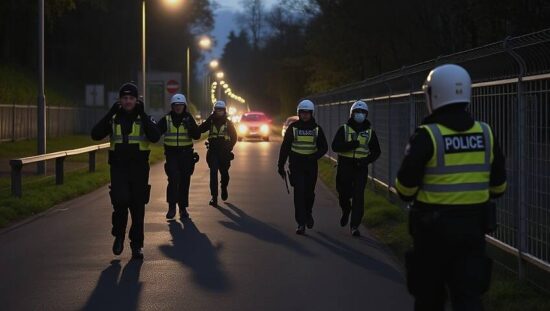Since the introduction of border controls, the Federal Ministry of the Interior has registered significantly fewer unauthorized entries at Germany’s borders than in the corresponding period of the previous year. This is evident from the response of the federal government to a parliamentary inquiry from the CDU/CSU parliamentary group, which the RBB reported on.
Between January and November 2024, a total of 62,493 unauthorized entries were detected at the borders, compared to 103,526 in the same period of the previous year. The number of rejections increased from around 29,000 cases in 2023 to more than 34,000. Additionally, more than 2,000 more arrest warrants were executed than in the previous year. In contrast, the number of detected smugglers decreased from 2,501 to 1,433 cases.
The majority of unauthorized entries were detected at the border with Poland, with the Austrian and Swiss borders also being focal points. The most arrest warrants were executed at the Austrian and Czech borders. A particularly significant increase in the number of rejections was recorded at the borders that have been controlled since September 16, 2024: rejections at the French border increased from 147 to 3,334, at the Dutch border from 69 to 692, and at the Belgian and Luxembourg borders, the numbers also rose significantly.
The numbers showed that the temporary border controls within the country were an “essential tool for further curbing illegal migration and combating human trafficking” a spokesperson for the Federal Ministry of the Interior told the RBB. However, they were an “ultima ratio” and only possible in the event of a “serious threat to public order or internal security.”
Federal Interior Minister Nancy Faeser (SPD) has already announced that she plans to continue the controls beyond March 2025, until the protection of the EU’s external borders is significantly strengthened within the framework of the Common European Asylum System.
Christoph de Vries, the interior expert of the Union’s parliamentary group, sees the balance as proof of the effectiveness of border controls: the numbers “refute all representatives of the coalition” who had long told the public that migration to Germany could not be limited by national border controls.
Marcel Emmerich, the chairman of the Greens in the Interior Committee of the Bundestag, disputes this, opposing permanent border controls and pointing out that the statistics were inflated by double-counting. The effort was “gigantic” while the effect of stationary border controls was small. Mobile controls, on the other hand, were more effective in combating serious cross-border crime and protecting borders.





